B1 is a vitamin that plays an integral role in the body’s ability to metabolize food and maintain stable blood sugar levels. It also helps with nerve function and the growth and development of red blood cells and prevents heart attacks and strokes. In this article, we will talk about ten significant health benefits that you may not have known existed.
The benefits of vitamin B1 are becoming more and more well-known, as research continues to be done on the subject. If you’re not getting enough in your diet, it may be time to start taking a supplement. Vitamin B1 is an essential nutrient that has been shown to help with everything from nerve function and blood sugar levels to heart attacks and strokes.
First, we will discuss how vitamin B1 prevents memory loss, aids with growth and development, and helps convert food into energy. Next, we will take a look at how the vitamin helps keep the nerves functioning properly, prevent heart attacks and strokes, and control blood sugar levels. Finally, we will discuss maintaining healthy skin and hair, slowing the aging process, and boosting energy levels, and we will wrap up with boosting the immune system. Once you have finished reading, you will be able to take advantage of the health benefits of vitamin B1.

1Prevents Memory Loss
Thiamine, also known as vitamin B1, helps prevent memory loss and protect the brain from damage. The best way to increase your brainpower is by consuming thiamine. It’s a vitamin that helps with memory loss and protects the brain from damage caused by binge drinking or taking drugs, such as cocaine.
Studies show that thiamine can help prevent memory loss and protect the brain from damage. Regular consumption of thiamine helps your memory and learning. Thiamine, also known as vitamin B1, is an essential nutrient for optimal brain function. It’s required for the production of acetylcholine, a neurotransmitter that helps speed up learning and memory processes in the hippocampus.

2Aids In Growth And Development
B complex vitamins are necessary for growth and development in children and pregnant women. Thiamine helps prevent birth defects of the brain and spine. This makes it crucial for fetal development.
Some of the most vital nutrients for pregnant women and children to consume are B complex vitamins. These contribute, in part, toward healthy skin and hair. Thiamine helps prevent birth defects, like neural developmental disorders or spina bifida.
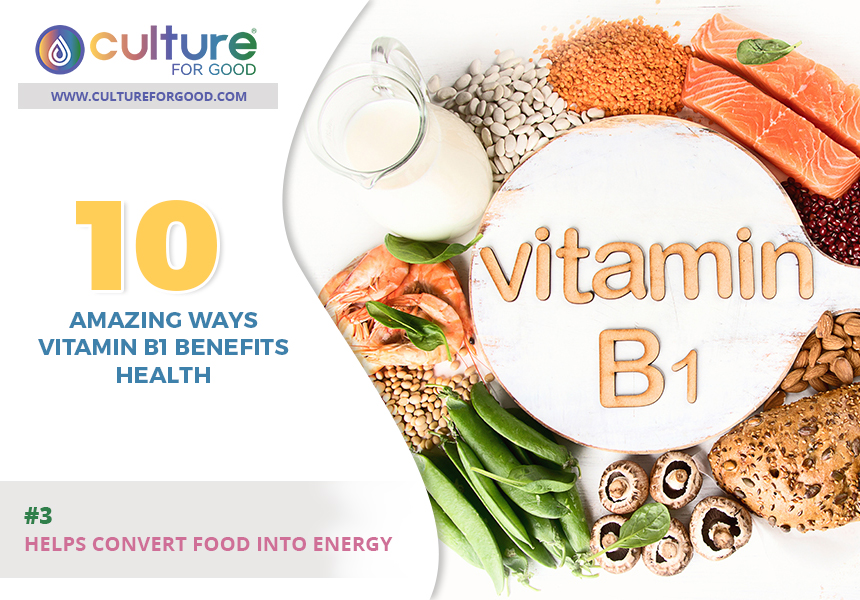
3Helps Convert Food Into Energy
B complex vitamins are important for converting food into energy. This is because they help break down carbohydrates, proteins, and fat. Thiamine (B1) specifically is vital in the conversion of glucose into energy. B complex vitamins are required for converting food into energy.
Thiamine (B1) aids in the breakdown of carbohydrates, proteins, and fat. Thiamine (B1), in particular, is required for the conversion of glucose to energy. By assisting with the production of enzymes needed to break down these macronutrients, B1 promotes nerve function, growth, and red blood cell formation!
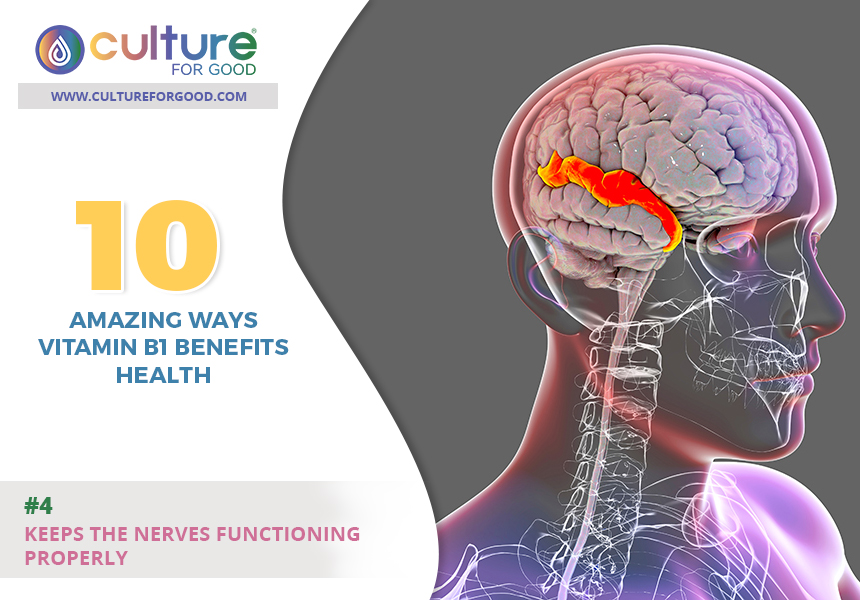
4Keeps The Nerves Functioning Properly
Thiamine is necessary for the conversion of glucose into energy. But this isn’t its only role when it comes to nerve function! Thiamine is specifically required for the growth of red blood cells, which carry oxygen throughout the body.
Thiamine is important for the health of the nervous system. It helps create the enzymes needed for the proper functioning of neurotransmitters. This is necessary for healthy growth and development in children, and for pregnant women, it helps prevent birth defects.
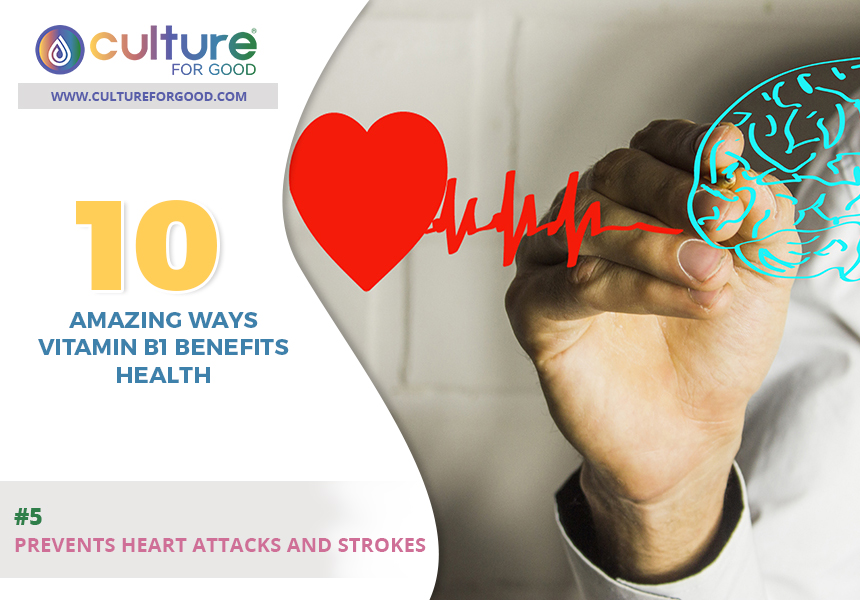
5Prevents Heart Attacks And Strokes
Thiamine helps keep the heart functioning properly by keeping the blood vessels open and preventing clots from forming. It also helps protect the brain from strokes by keeping the blood flow steady. Thiamine helps keep the blood vessels open and prevents clots from forming.
Thiamine is an essential nutrient for people who eat meat, and it’s crucial for the production of red blood cells. It is important to consume thiamine-rich foods regularly to maintain a healthy heart. These include pork, salmon, and peas.
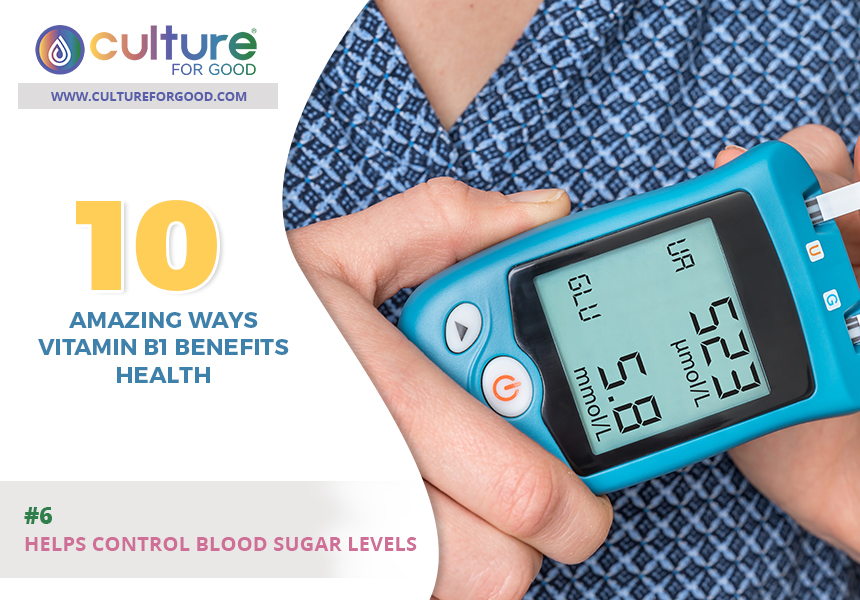
6Helps Control Blood Sugar Levels
B complex vitamins are critical for controlling blood sugar levels. Thiamine helps control blood sugar levels by helping the body use glucose more effectively. This prevents spikes and crashes in blood sugar levels.
Spikes and crashes in blood sugar levels can lead to problems such as fatigue, irritability, and cravings. Make sure that your blood sugar levels are stable. When you do, you’ll feel more energetic and be less likely to experience mood swings!

7Maintains Healthy Skin And Hair
B vitamins affect the maintenance of your skin and hair in a variety of ways. For example, vitamin B6 helps produce serotonin, which provides nutrients to your blood vessels. These nutrients are responsible for the creation of sebum, ensuring that your scalp and hair are well-nourished.
Thiamine is important for the health of your hair and skin. Studies show people with thiamine deficiencies are more likely to have dry, flaky skin that can crack and become infected. Vitamin B1 is also necessary for the production of sebum, natural oil that keeps your scalp and hair hydrated.

8Slows The Aging Process
B complex vitamins play a significant role in slowing the aging process. This is because they help the body convert food into energy. As we age, our ability to produce energy decreases, which can lead to several health problems.
B complex vitamins help slow the aging process by helping the body convert food into energy. This means that we’ll be able to maintain our health and vitality for longer. When you have an adequate intake of B vitamins, you’ll look and feel good.

9Boosts Energy Levels
B complex vitamins are known to boost energy levels. This is because they help the body convert food into energy. When you have an adequate intake of B vitamins, you will feel more energetic and less likely to experience fatigue.
When you consume a balanced diet that includes plenty of B complex vitamins, you’ll enjoy more energy and be less likely to experience fatigue. The B vitamins work together to help the body convert food into energy. This is necessary for maintaining optimal health and vitality!

10Supports The Immune System
Vitamin B1 helps boost the immune system by increasing the production of white blood cells. This means that you are less likely to get sick when taking vitamin B1 supplements. Vitamin B1 helps increase the production of white blood cells, boosting your immune system in the process.
Vitamin B1 is a vitamin that can strengthen the immune system. It has been shown to help protect against colds and flu. It can promote healthy skin by fighting acne scarring, wrinkles from expression (genetic), or sun damage.
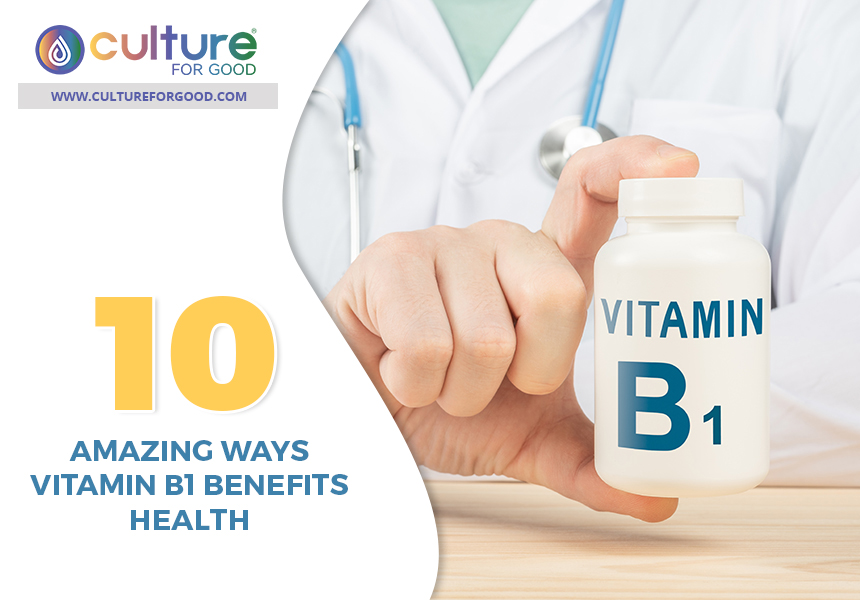
Vitamin B1, also known as thiamine, is required for the body’s ability to metabolize food and maintain healthy blood sugar levels. It aids with the maintenance of nerve function and the growth and development of red blood cells and prevents heart attacks and strokes. In this article, we talked about ten significant health benefits that you may not have known existed.
Vitamin B1 has been studied for several years, and its advantages are increasingly recognized. If you don’t get enough of it in your diet, you may need to start taking a supplement. Vitamin B1 is a crucial nutrient that has been proven to aid with a variety of health issues.
First, we discussed how vitamin B1 prevents memory loss, aids with growth and development, and helps convert food into energy. Next, we took a look at how the vitamin helps keep the nerves functioning properly, prevent heart attacks and strokes, and control blood sugar levels. Finally, we discussed maintaining healthy skin and hair, slowing the aging process, boosting energy levels, and wrapped up with boosting the immune system. Now that you have finished reading, you can take advantage of the health benefits of vitamin B1.

